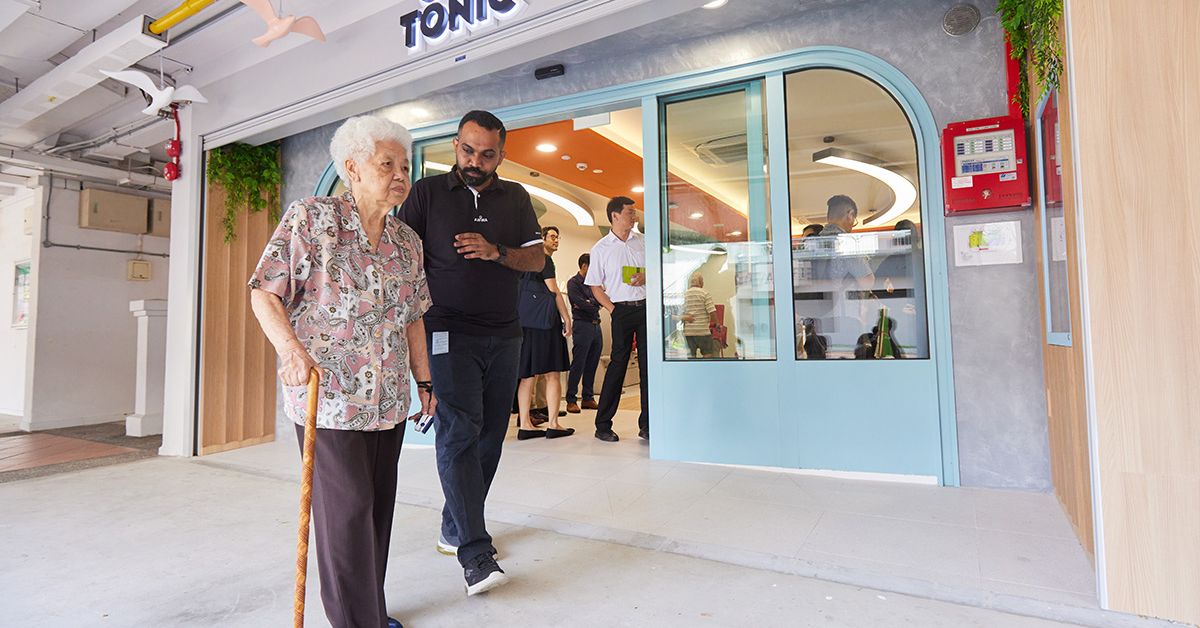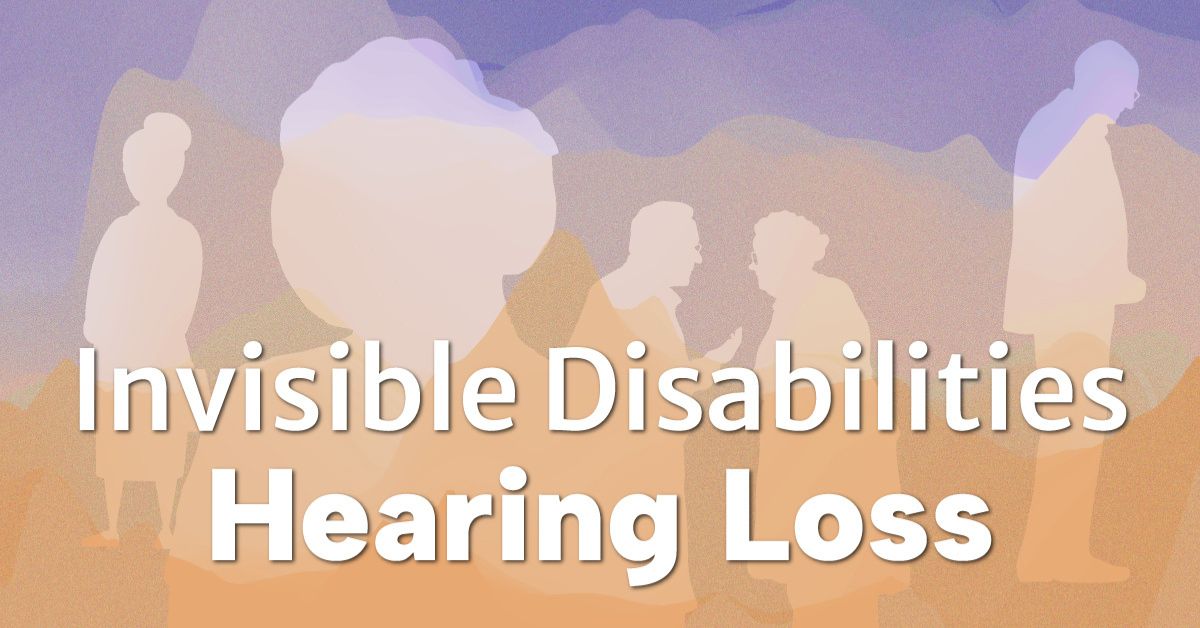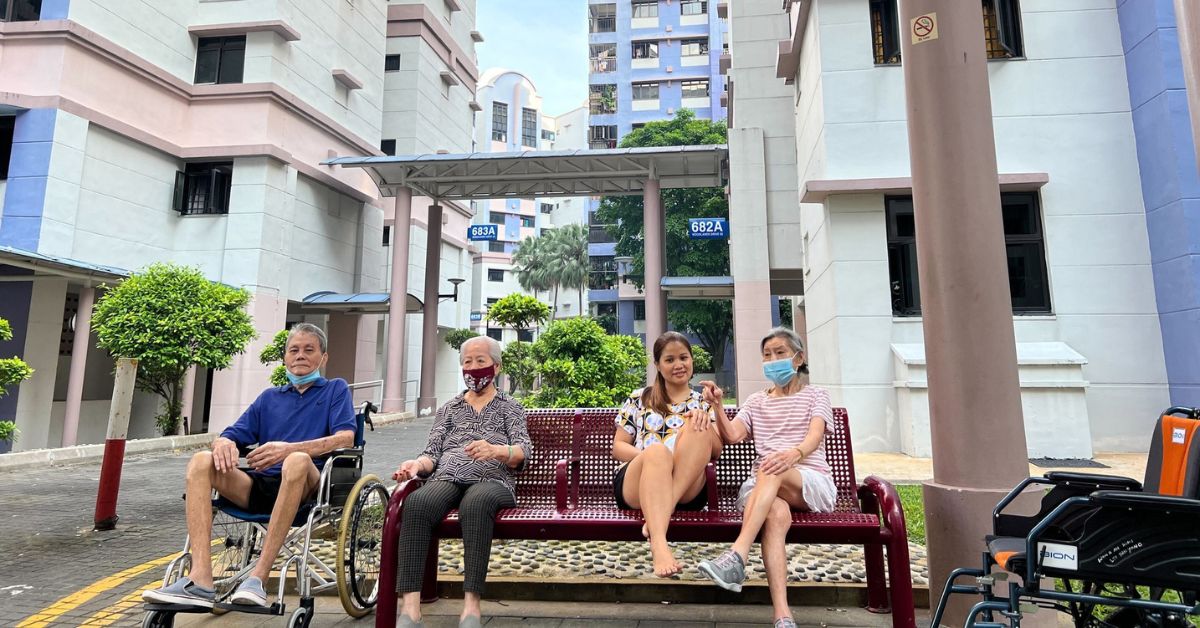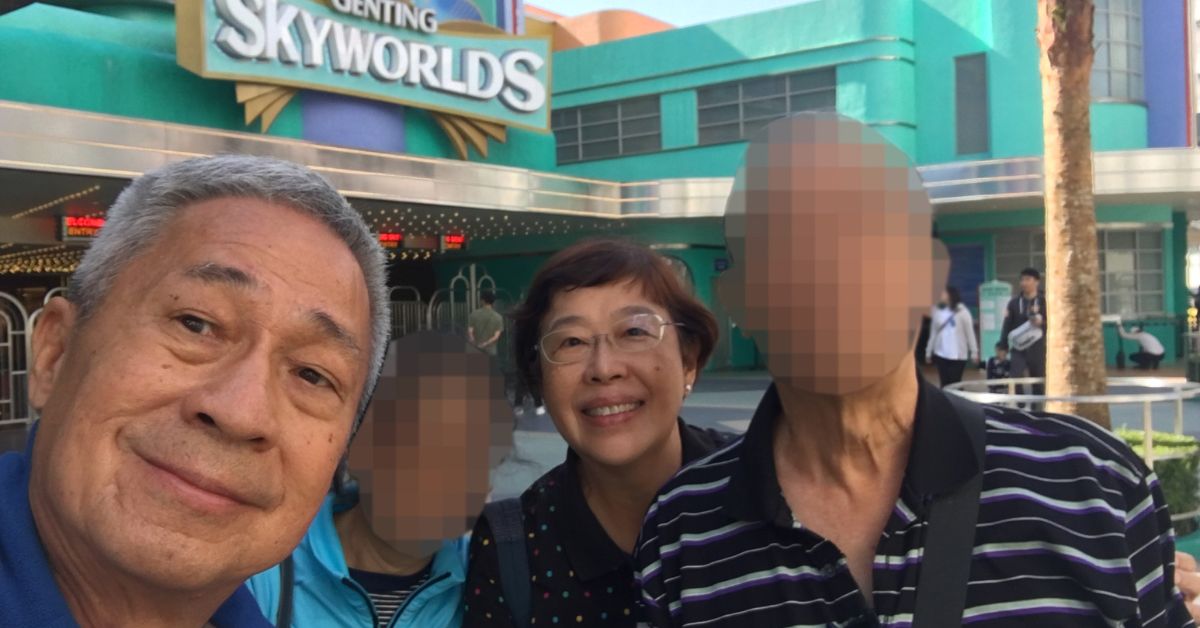
Have you ever considered bringing a blind friend out? How do you move around? What if he falls? What to do during meals? What if….? What if….?
It was something that never occurred to me until my friend C started losing his vision. When he was first diagnosed, I was worried that we could no longer go out as we used to, but as we both made adjustments, we found that things were nearly like old times.
First, some background: C, currently in his 70s, was a high-flying professional. He entertained a lot, golfed, bowled, sang karaoke, had nice cars, loved movies, collectible toys, reading books, visiting shopping centres and was a foodie. A typically successful Singaporean.
However, when he was around 50 years old, he started losing his sight due to a damaged optic nerve caused by diabetes. He was still maintaining his active lifestyle, but with less bravado due to a lower level of confidence.
At around 60, he gave up driving and stopped working, and his lifestyle went into a steep dive. At 70, he is totally blind in one eye, and has a two percent vision in the other eye. And this will deteriorate till zero vision.
Advertisement
His new blind reality
This means changes to his lifestyle.
C is a single parent and lives with his three adult working children. He is usually at home and is very familiar with the layout of his home.
So he is able to move about at home freely, and knows the locations of all the appliances he uses regularly, like his kettle and television. And no one is allowed to move these appliances without consulting him!
WhatsApp messages on his mobile phone are in large fonts, one word per line, which he reads with a magnifying glass. The most effective form of communication with him is actually using voice messages.
Watching television is a blurry image 30cm away, so C watches shows with dialogue and good plots. His mind is still very good, and he remembers names, relationships, voice recognition, sounds to create a scene in his mind.
I joke that he is better than me because with Korean dramas, I cannot tell the difference between the grandmother, the mother and the daughter because they all look alike!!
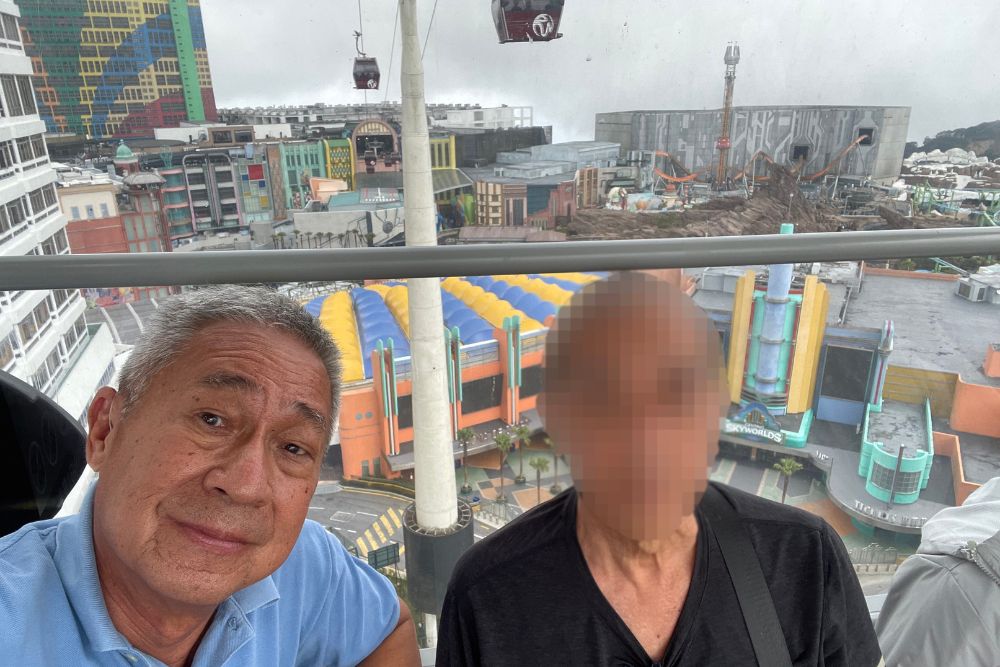
Going out is more of a challenge for C. If it is too bright, he only sees white. If it is too dark, he only sees black. At the correct level of brightness, he only sees the outline of people at best.
He is registered with the Singapore Association of the Visually Handicapped (SAVH), and is issued and taught to use the white cane to move around. Still, C depends a lot on memory for locations he needs to go to, and his biggest fear is making a wrong turn, getting lost, and being disorientated.
New routines established to cope with being blind
His independent outings are mainly to the coffeeshop near his house where the hawkers know of his condition. They would help him order food even from the other stallholders, and he gets served and his tray cleared for him.
He knows his way to the bus stop and asks for help to board the correct bus to the nearest shopping centre and where to alight.
Carrying the SAVH identity card gives him a free bus ride, and the white cane always gets him a seat on the bus. He knows the way from the bus stop to the supermarket and the exact location of the things he wants to buy, but asks for help to pick up the items.
C also has a fixed route in the supermarket for the things he usually buys, and then finds his way to the cashier. However, if someone brings him to a different aisle and makes a few turns, he can get disorientated and loses his way to the cashier.
He also knows the locations of the food stalls at the same level of the supermarket, but not on the upper floors of the shopping centre.
He finds that people are generally helpful when he carries his white cane, but when C gets too confident in certain locations, he keeps the cane in his pocket.
This is when people are less helpful, bumping into him, and he gets less polite answers when he asks for help.
I told him that looking on the bright side, he does not look blind!! C’s biggest peeve is people leaving the shopping trolley or basket in the middle of the aisle as he bumps or trips over them most of the time.
Still going out even when blind
Whenever we go out together, C will hold onto my arm above the elbow, half a step behind. He can feel me slowing down or stopping, moving left or right, or up or down. I still need to warn him of steps ahead, number of steps, up or down.
Bringing him out requires a look at his previous activities, and making adjustments to them so that he can enjoy reminiscing on his old times with some limitations.
The simplest of all is going for a long drive, having a beer by the beach, letting him enjoy the smell, sound and breeze of the sea, and imagining the horizon.
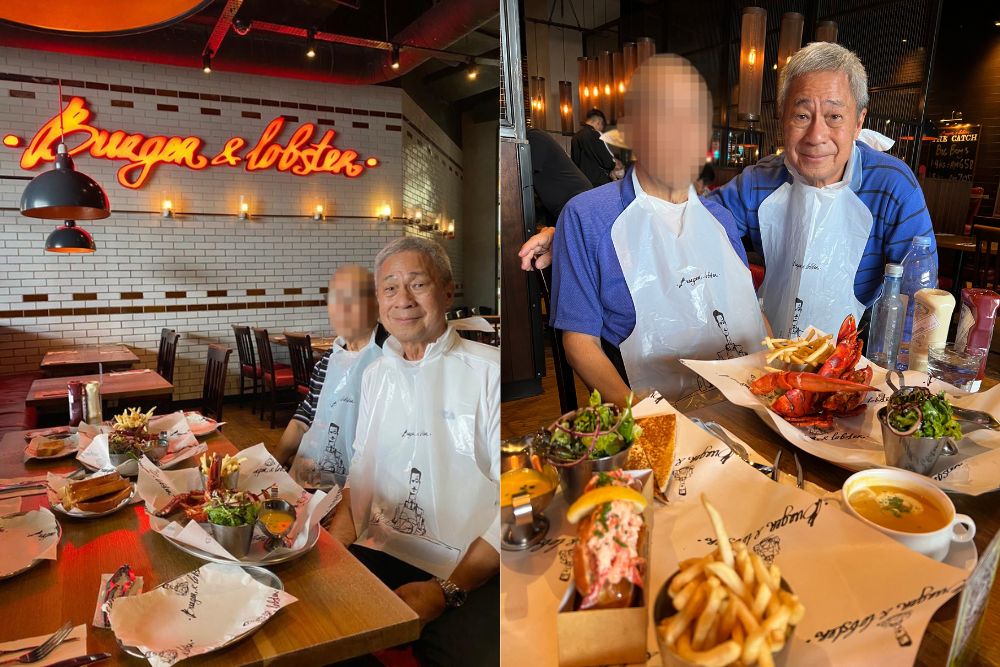
Image Courtesy of Jeffrey Yang
Being a foodie, he will request to go to a certain place for a certain dish. I would bring him there, often at our favourite hawker centres. He would ask which entrance we are entering by, and he would be able to lead me to the stall. His memory and sense of direction is still superb.
One exciting activity is our trips to Genting Highlands. The weather is cool, befitting that of an overseas holiday, and after I orientate him to the hotel room, toilet, shower and wash basin, C would be independent around the room.
Then we would eating ourselves silly for four meals a day for four days. Between the meals, the bright lights of the indoor theme park, the massive LED screens in the atrium and other holiday experiences add to the colours and vibrance of the place which he can experience and enjoy.
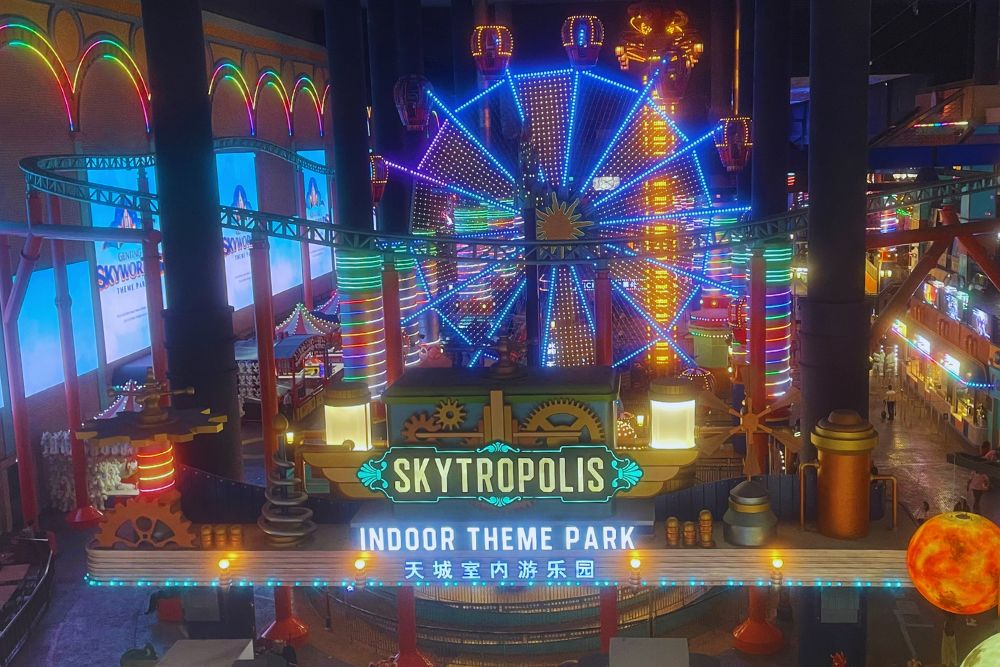
Image Courtesy of Jeffrey Yang
We would often also catch a movie there, so if you walk into an empty cinema in Genting and see two people sitting on the front row, it is probably us.
No Batman movies because the action is always at night, and he sees a completely black screen at night scenes. No kung fu movies because he cannot see the fight scenes. Fast & Furious is fine because there is a plot, and the roar of fast cars.
We also often enjoy durians sold at the outdoor carpark, or just having a coffee sitting at an outdoor terrace.
Bringing him bowling is another exciting activity. I would programme the lane to raise the gutter rails when it is his turn. Then I will help him get the ball and orientate him in the direction of the pins and the foul line, and off he goes.
He enjoys bowling the ball and hearing the pins fall. I would need to tell him which pins he hit and which pins he missed.
Why do I do it? Because he is my friend. My friend for over 50 years, and he needs some variety in his life. And we have a great time hanging out and chatting, as friends do, each time we meet up. So why should we stop doing that just because he lost his sight?
C's reflections on his loss of sight
I am blessed with family and good friends.
For friends, initially, they need to be taught how to guide me, like to walk slower, and to warn me of steps ahead or uneven floors. Some friends learn quickly. Other friends cannot seem to learn.
I have a few good friends whom I can depend on and have confidence in guiding me. But I try not to be a burden to anyone.
I look into the future with trepidation. I think of the convergence of all the uncertainties, for example when my children leave home, when I lose my friends, when I lose my sight completely.
I recognise that we all have our breaking points. I fear for the day I find mine. But I have to mentally accept my condition, to stay positive and play the cards I am dealt with. I hope for the best, but prepare for the worst.
Would Artificial Intelligence be developed soon enough to help me? Will I have a wearable device to help my brain see where I am going, where the obstacles are, see movies, or read a book? Will there be light at the end of my tunnel?

